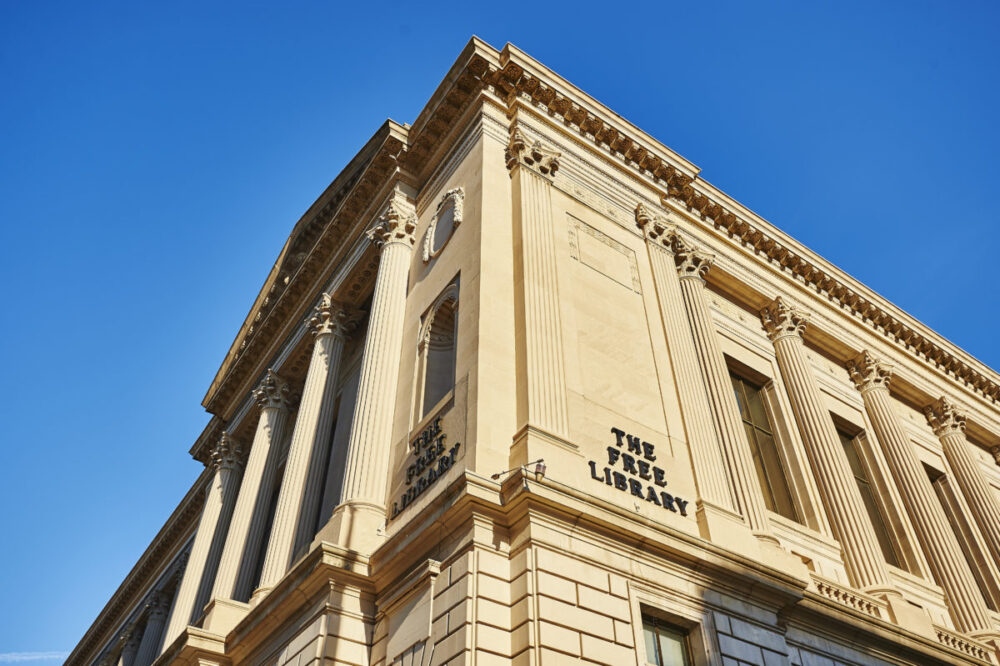The Philadelphia City Council held a hearing Monday to discuss one idea to close the city’s digital divide: what if citizens without internet access could go to the Free Library of Philadelphia and borrow mobile internet hotspots?
Councilwoman Cindy Bass loved the idea and called on the nonprofit to put the plan in place.
“I call upon the Free Library to prioritize the creation of a mobile lending program action plan,” said the councilwoman in a press release published after the hearing. “City agencies such as the Philadelphia Housing Authority are already working to ensure that more public housing families have internet access. Our library system should be taking a similar leadership role on this issue.”
Bass called the digital divide a “massive problem in Philadelphia,” and acknowledged that the problem is exacerbated by Philly’s embarrassingly high poverty rates. (According to a report, the rate for adult poverty across the City is 25 percent, with some neighborhoods going as high as 45 percent.)
Bass, who chairs the Committee on Parks, Recreation and Cultural Affairs, called on the Free Library of Philadelphia to provide budgetary data on how much it currently invests in digital inclusion programs.
We reached out to the Free Library to hear their take on the issue. Joe Benford, Deputy Director of Customer Engagement and a witness during the Council’s hearing, said the organization conducted extensive research on the viability of purchasing mobile hot spots for public lending, including an internal assessment of the feasibility of such a program.
“We concluded that the cost of the program would be of significant concern in this time of uncertain funding, while the impact of the loaned devices on bridging the digital divide would be minimal,” said Benford. “The Library is constantly looking for innovative and meaningful ways to serve our customers.”
In other words, it sounds like a good idea but it wouldn’t make that much of a difference. And it’d be pricey.
Once the math was done, the Free Library found the heft of the financial commitment would be “of significant concern” in an initial stage. As we’ve seen with body cameras, the bigger costs aren’t in the hardware acquisition but in the software.
While vendor quotes were variable, the organization’s research showed that an average data plan, per device, would cost approximately $40 per month or nearly $500 per year,
“Vendors suggested launching the program with a minimum of 100 devices, totaling nearly $50,000 in data costs alone, which does not account for the cost of the devices themselves, maintenance, tech support, or start-up fees,” the organization told Technical.ly in an emailed statement. “With these added costs, we could reach 100 families for roughly $60,000 annually.”
The Free Library currently offers users access to 1,000 public computers, hands-on training, internet access and Wi-Fi at 54 branches across town.
Library systems in other cities have implemented WiFi hotspot-lending programs, but in many of these cases, the private sector has kicked in some funds to lighten the load for public libraries. Seattle’s and New York City’s programs, for example, have backing from The Google Foundation.
Could Philly also reach out to its own local corporate citizens and get backing for a similar program? Could that be sustainable in the long run? Are there better, more efficient uses of funds than mobile hotspots? All of these are pressing questions. However, the first round of grant-backed projects from the Comcast and Verizon-backed Digital Literacy Alliance might just hold more concrete fixes. They’re scheduled to be announce in four to six weeks.
Stay tuned.
Before you go...
Please consider supporting Technical.ly to keep our independent journalism strong. Unlike most business-focused media outlets, we don’t have a paywall. Instead, we count on your personal and organizational support.
Join our growing Slack community
Join 5,000 tech professionals and entrepreneurs in our community Slack today!

The person charged in the UnitedHealthcare CEO shooting had a ton of tech connections

From rejection to innovation: How I built a tool to beat AI hiring algorithms at their own game

Where are the country’s most vibrant tech and startup communities?

